Publications
Articles, publications, books, tools and multimedia features from the U.S. Institute of Peace provide the latest news, analysis, research findings, practitioner guides and reports, all related to the conflict zones and issues that are at the center of the Institute’s work to prevent and reduce violent conflict.
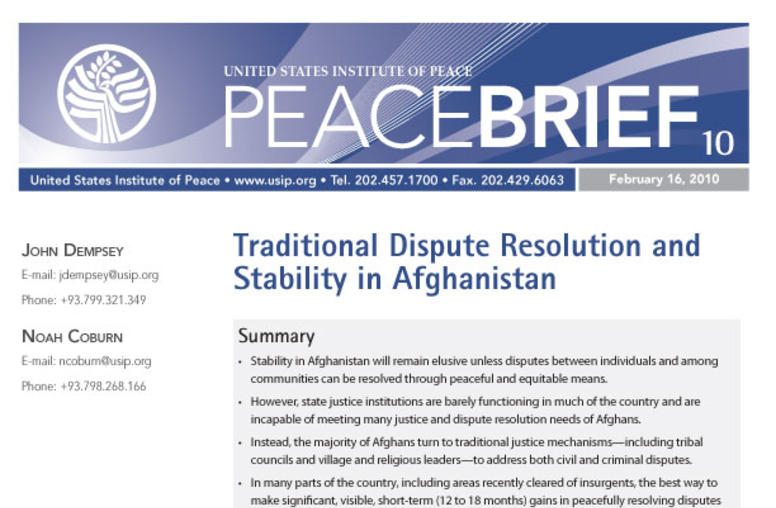
Traditional Dispute Resolution and Stability in Afghanistan
Stability in Afghanistan will remain elusive unless disputes between individuals and among communities can be resolved through peaceful and equitable means. However, state justice institutions are barely functioning in much of the country and are incapable of meeting many justice and dispute resolution needs of Afghans.
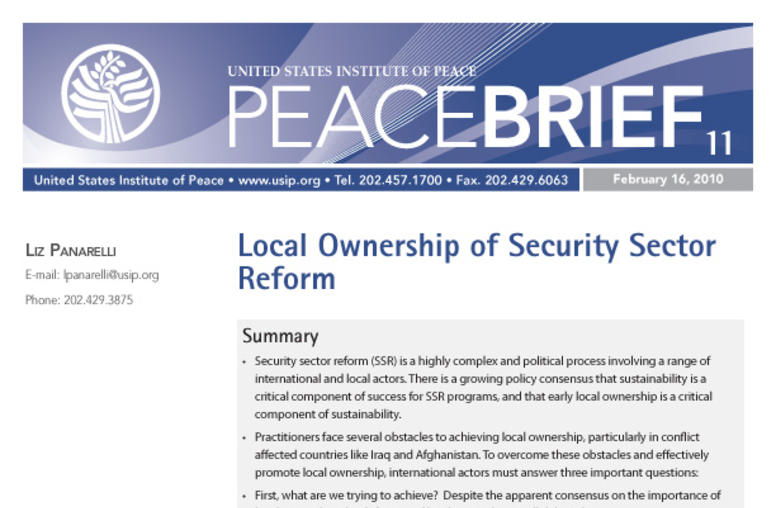
Local Ownership of Security Sector Reform
Security sector reform (SSR) is a highly complex and political process involving a range of international and local actors. There is a growing policy consensus that sustainability is a critical component of success for SSR programs, and that early local ownership is a critical component of sustainability.
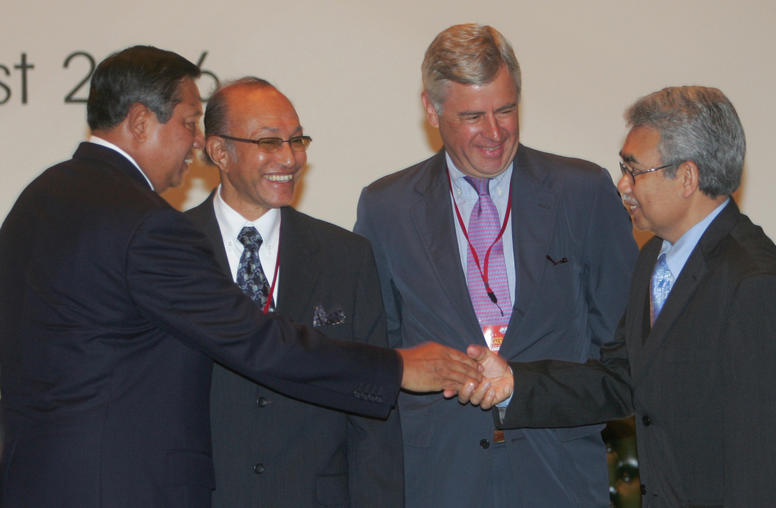
After the Agreement: Why the Oversight of Peace Deals Succeeds or Fails
Almost every modern peace agreement has established some type of institution to oversee implementation of the agreement’s provisions and monitor compliance. This report provides a careful examination of monitoring and oversight mechanisms set up in Sierra Leone, Indonesia, Sudan, and South Sudan between 1999 and 2015, and offers a series of key lessons for the design of future monitoring mechanisms.
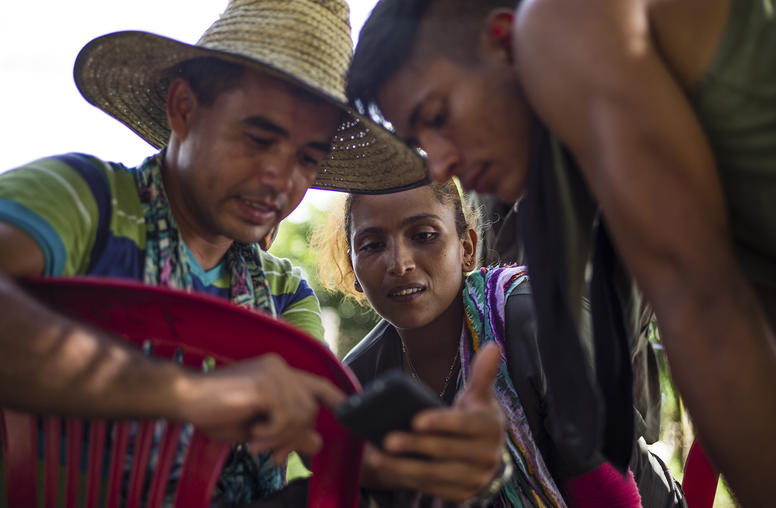
Digital Inclusion in Mediated Peace Processes: How Technology Can Enhance Participation
Inclusion in peace processes is conventionally understood in “offline” terms, such as being physically present at the negotiation table. However, digital technology can support a mediator’s efforts to integrate a broad variety of perspectives, interests, and needs into a peace process. This report explores the current and future practice of digital inclusion, giving a framework for understanding the possibilities and risks, and providing examples of practical ways digital technologies can contribute to mediated peace processes.
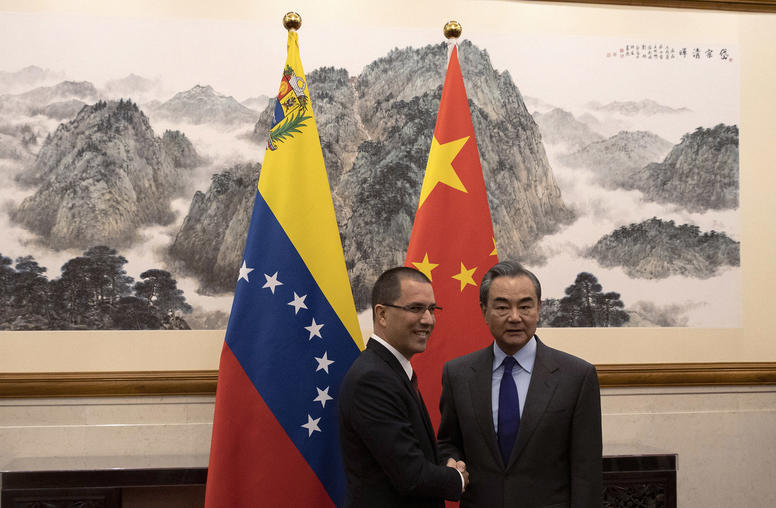
China-Venezuela Relations in the Twenty-First Century: From Overconfidence to Uncertainty
The outsized ambitions and scale of the China-Venezuela political and financial relationship in the twenty-first century have meant that its failures and disappointments have been correspondingly large. This report explores how the nations came to be involved, how each side has responded to Venezuela’s extended economic and political crisis, and the implications for the future of the bilateral relationship and for China’s aspirations to be a leader and agent of international development.

Tyler Beckelman on the Virtual U.N. General Assembly
While this year is the U.N.’s 75th Anniversary, the General Assembly was a “more muted affair” than expected, says USIP’s Tyler Beckelman. Member states had a chance to discuss the newly signed Abraham Accord and the future of multilateral diplomacy, but virtual summitry is “no substitute for meeting in person.”
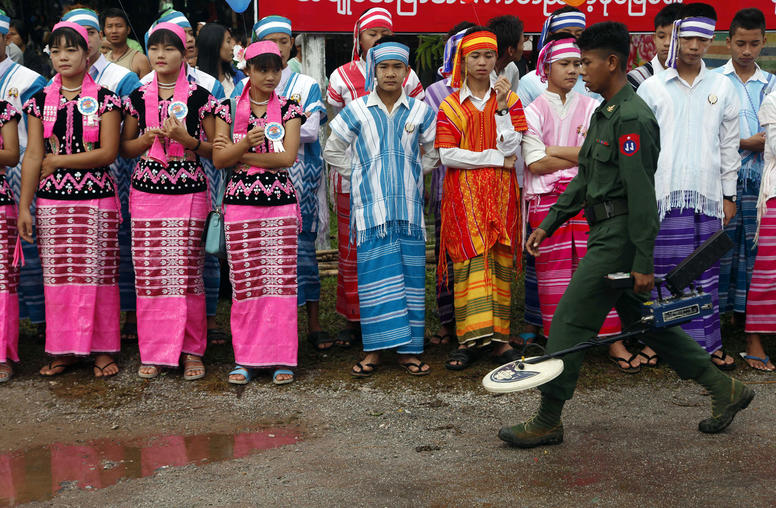
Why Burma’s Peace Efforts Have Failed to End Its Internal Wars
After seven decades of civil war and five failed peace efforts, Burma is no closer than before to reaching an agreement that would bring an end to its many conflicts. Analysis of those previous attempts shows that they all foundered on immutable attitudes on both sides. This report suggests that the peace process needs a fresh start, learning from the past and seeking to resolve underlying political disparities while prioritizing community interests and sustainable development.
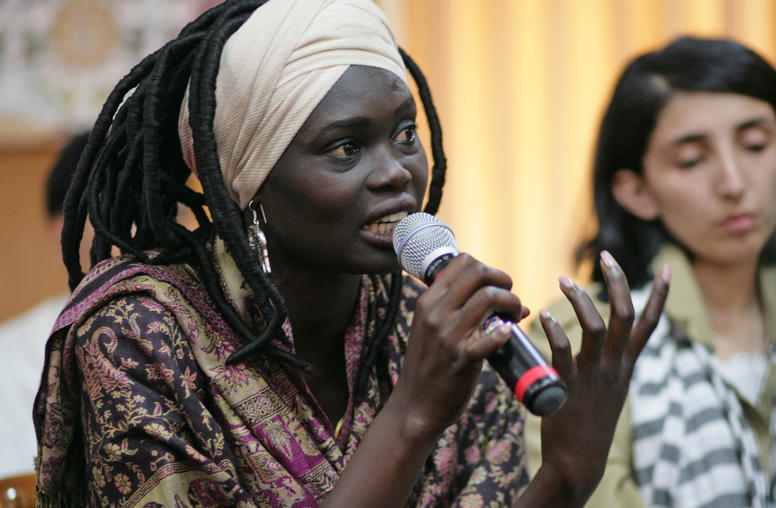
What Works in Youth Projects? Lessons for the Youth, Peace, and Security Field
Until the adoption of UN Security Council Resolution (UNSCR) 2250 in 2015, the international community had no comprehensive framework with which to address the specific needs and opportunities of a key demographic group—young people. This report presents the findings of a meta-review assessing fifty-one youth projects supported or implemented by USIP between 2011 and 2018 and offers recommendations for continuing to develop and support peacebuilding activities with effective engagement, cooperation, and flexibility among civil society organizations and funders.

Susan Stigant on Sudan’s Latest Peace Agreement
Sudan’s transitional government has signed a peace agreement to end a number of long-standing conflicts and civil wars. USIP’s Susan Stigant says this is a positive sign for democratic progress, as “one of the promises of the revolution was to seek peace,” but cautioned that the real “work only begins once the ink is on the paper.”

Ann Phillips on Azerbaijan-Armenia Conflict
As fighting over Nagorno-Karabakh continues to escalate, USIP’s Ann Phillips breaks down the complex geopolitical stakes that have sprung up around the conflict, which “has been simmering, and ebbing and flowing, ever since the implosion of the Soviet Union.”